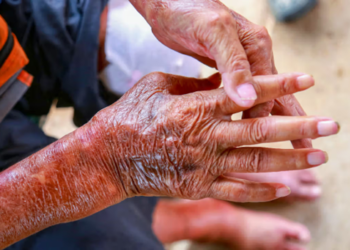Every October, the UK turns pink for Breast Cancer Awareness Month. It’s a time when charities, healthcare providers, and communities come together to highlight the importance of early detection, support those affected, and raise funds for life-saving research. For many, it’s a powerful reminder of how far medical science has come in the fight against breast cancer.
But alongside the progress, there are still moments when patients are failed, through delayed diagnosis, misinterpretation of test results, or negligent treatment. For individuals who have survived breast cancer but endured unnecessary suffering because of medical negligence, this month is also a chance to recognise that seeking justice and compensation is not only your right, but can also help you move forward with greater peace of mind.
Why Breast Cancer Awareness Month Matters
Breast cancer is the most common cancer in the UK. According to Cancer Research UK, around 56,000 women and 400 men are diagnosed each year. Early diagnosis is key: when caught at stage one, the survival rate is significantly higher than when the disease progresses.
Awareness campaigns have helped more people understand the signs to look out for — such as lumps, changes in breast shape, or unusual discharge, and have encouraged regular screening. These efforts save lives every year.
Yet for all the progress, there are cases where the healthcare system falls short. A delayed mammogram, a missed lump on an ultrasound, or errors in pathology reporting can lead to late diagnosis, more aggressive treatment, or in the worst cases, avoidable loss of life.
When Breast Cancer Care Goes Wrong
Breast cancer treatment in the UK is generally of a high standard, but mistakes do happen. Common examples of medical negligence include:
- Delayed Diagnosis: A GP failing to refer a patient for further testing despite obvious warning signs.
- Misdiagnosis: Interpreting scans incorrectly, resulting in patients being told they are clear of cancer when they are not.
- Treatment Errors: Mistakes in chemotherapy dosage, radiotherapy planning, or surgical procedures.
- Failure to Follow-Up: Not monitoring patients properly after treatment, leading to missed recurrences.
For the individuals affected, these errors can mean longer, harsher treatment, permanent health complications, and immense emotional distress — all of which could potentially have been avoided.
The Impact of Medical Negligence
The impact of negligence goes beyond physical health. Survivors often describe feeling betrayed by the system they trusted to safeguard their wellbeing. Many face:
- Emotional distress: Anxiety, depression, and loss of confidence in healthcare providers.
- Financial strain: Extra medical costs, loss of income from extended time off work, or the need for ongoing care.
- Strained relationships: Families often carry the weight of caregiving and financial uncertainty.
This is where the law can provide a path to justice. Compensation claims are not about “blaming” doctors or nurses, but about acknowledging harm that could and should have been avoided.
Why Pursuing a Compensation Claim Matters
Making a claim after experiencing medical negligence related to breast cancer isn’t about undoing the past, it’s about securing your future. Compensation can cover:
- Loss of earnings if you were unable to work.
- Additional medical expenses, including private treatment or rehabilitation.
- Care and support costs if you need long-term assistance.
- Pain and suffering, recognising the emotional impact of what you endured.
Perhaps most importantly, claims also serve a wider purpose: they highlight systemic issues and help prevent similar mistakes happening to others. By speaking up, you not only support your own recovery but may also protect future patients.
How to Know If You Have a Claim
If you believe you’ve suffered because of poor breast cancer care, ask yourself:
- Was there an unreasonable delay in diagnosis or treatment?
- Did medical staff fail to act on obvious symptoms or test results?
- Did errors in surgery, chemotherapy, or radiotherapy worsen your condition?
- Were you denied proper follow-up care, leading to a recurrence or worsening of your health?
If the answer to any of these is yes, you may be entitled to compensation.
The Process of Making a Claim
Many people feel daunted at the idea of taking legal action, particularly after the trauma of cancer treatment. But the process is more straightforward than most expect:
- Seek Specialist Advice: Speak with a solicitor experienced in medical negligence claims. They will listen to your story and advise on whether you have grounds for a case.
- Gather Evidence: This includes medical records, correspondence with your healthcare provider, and any notes you kept during treatment.
- Medical Expert Review: Independent experts will assess whether your care fell below the accepted standard.
- Negotiation and Resolution: Most cases are settled before they go to court, meaning you can often secure compensation without a lengthy trial.
Many firms in the UK work on a “no win, no fee” basis, reducing the financial risk to you.
Breast Cancer Awareness Month: A Time for Action
October is a time of solidarity, awareness, and hope. It is also a moment to reflect on your personal journey. If you or someone you love has battled breast cancer and suffered because of medical negligence, this month offers an important reminder: you do not have to accept it silently.
Taking action by seeking compensation is not about dwelling on the negative. It is about acknowledging the reality of what you’ve endured and ensuring you have the financial and emotional resources to move forward.
Final Thoughts
Breast Cancer Awareness Month shines a powerful light on the resilience of survivors and the importance of progress in research and treatment. But it should also shine a light on the areas where the system has let people down.
If you’ve been affected by medical negligence during your breast cancer journey, you have the right to seek answers and the support you deserve. Making a compensation claim can help ease the financial burden, validate your experience, and empower you to focus on recovery and life beyond cancer.
This October, as the country raises awareness and funds for breast cancer, take a moment to raise awareness for yourself too. If your care fell short, don’t stay silent, speak to a solicitor, explore your options, and take the steps towards the justice you are entitled to.
David Prior
David Prior is the editor of Today News, responsible for the overall editorial strategy. He is an NCTJ-qualified journalist with over 20 years’ experience, and is also editor of the award-winning hyperlocal news title Altrincham Today. His LinkedIn profile is here.












































































